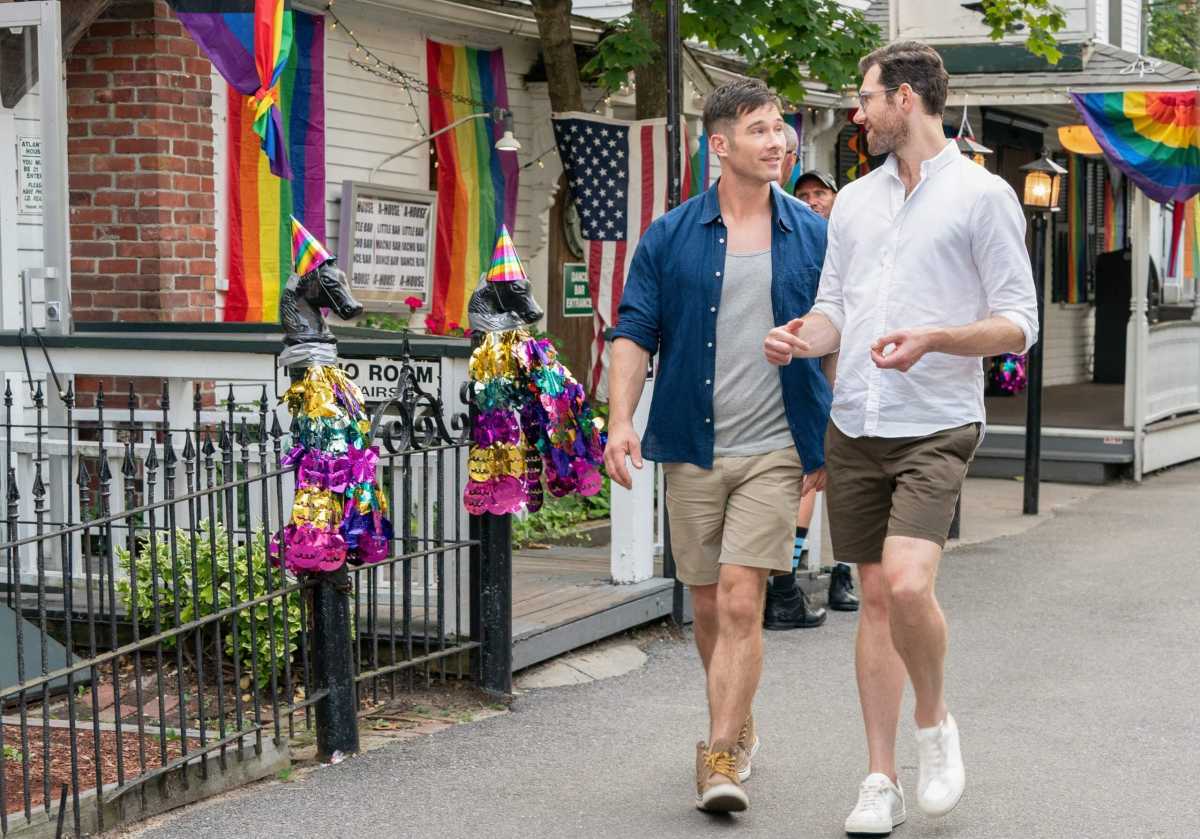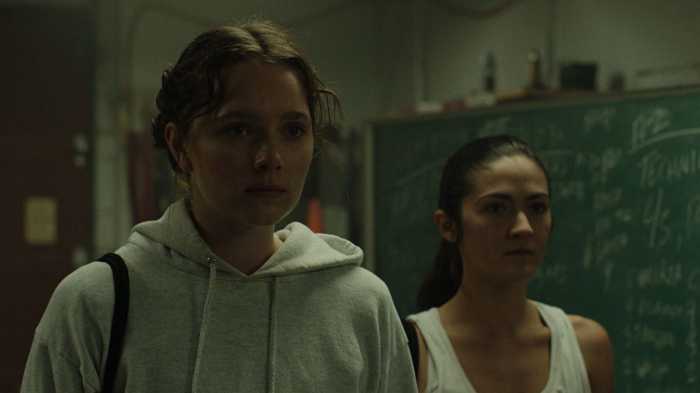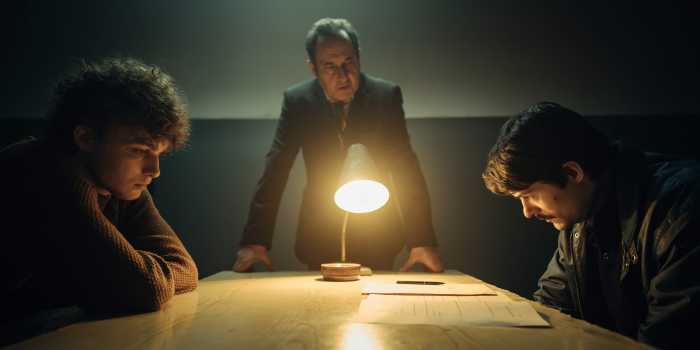The new Hollywood romcom, “Bros,” wittily answers the question: What if two men who pretty much swear off relationships happen to fall into one?
Bobby Leiber (co-writer Billy Eichner) is an executive at a New York LGBTQ history museum who meets probate lawyer Aaron Shepard (Luke Macfarlane) at a club one night. The guys hit it off well enough that they both want more — but that more can sometimes mean other guys. (“Bros” is notable for featuring not one, but two very funny fourgies).
But after Bobby and Aaron decide to call it a relationship, trouble ensues when Bobby creates trust issues for Aaron, most notably during a visit from Aaron’s family. Can these two guys come together without driving each other away?
Gay City News chatted with Billy Eichner and Luke Macfarlane about their new film.
It was great to see such a large and diverse queer cast. How did that enhance making “Bros?”
Billy Eichner: Because the whole cast is LGBTQ, and because we [indicating himself and Luke] are openly gay actors and have been around a minute, we know that we have not had opportunities like this. I think we were all really grateful. We appreciated that experience and that gratitude permeates the screen. You can feel that warmth even if the jokes can be abrasive.
The film emphasizes the importance of queer history. What are your observations about queer history?
Billy Eichner: It’s amazing how scared we’ve been to discuss, even in a threadbare way, the contributions of LGBTQ people and which historic figures were LGBTQ.
What can you say about leaning into or away from queer and straight stereotypes in “Bros”?
Billy Eichner: I made the movie with Judd Apatow and Nick Stoller, two very accomplished straight men. We collaborated on this together and every step of the way, we said, Let’s make it as funny as possible and let’s make it as honest as possible. I know the experience of what it means to be an openly gay man my whole life and having many LGBTQ friends and navigating gay culture. Sometimes there is truth in stereotypes. But the point is to show a stereotype and then be able to reveal that it is not a stereotype — that the person is so much more than the cartoon character that gay people have often been asked to play. The point of “Bros” was to show both these men as much more complicated and emotionally messy than they initially seem.
Luke Macfarlane: It’s a particularly hard sort of thing to put on top of the movie. No one watched, “When Harry Met Sally” and said, “That isn’t straight representation.” We do have the queer audience that comes at us and says, “We’re finally going to see my life. Is it going to be accurate to my specific life?” And it’s not going to be accurate to the entire queer experience. But it is a challenge. We’re finally here. We’re finally in the multiplex. We’re opening in 3000 theaters, and everyone wants to see themselves because it’s the first time. But you can’t please all the people all the time, as Bob Marley says. [Laughs]
I appreciated the film’s discussions about confidence and vulnerability, especially during a sweet scene on the beach. What observations do you have about being self-reliant but also able to expose yourself to others as Bobby and Aaron do?
Billy Eichner: I think a lot of the self-reliance and self-possession at the beginning of the film are admirable qualities to have, but taken to the extreme, you’re shutting yourself off from having vulnerable, intimate relationships with people.
Why do we do that? Is that just insecurity?
Billy Eichner: Being vulnerable, you’re opening yourself up to potential hurt and criticism as much as you’re opening yourself up to potential love and comfort.
But your film shows that when you don’t do that, you can still feel hurt and pain.
Luke Macfarlane: I actually think that’s a universal thing. Yes, we have the Velvet Rage and the Best Boy syndrome, but I think that many of the people you look at in the world who have been highly successful have done it because they thought they did it all by themselves, and that is the only thing they can focus on, which is their own private life. I don’t know if that is specifically singular to the gay community.
Given that you are playing these characters, what influences did you have?
Billy Eicher: I mostly based it on my own life. I did grow up in a time when there were really great romantic comedies being released in movie theaters, which we don’t get anymore. They were always about straight people and never included any LGBTQ folks, barely included any marginalized group. “Bros” is able to exist because of the decades of indie queer romcoms that we got, but I was thinking about Nora Ephron, James L. Brooks, and Woody Allen movies I grew up with but never saw myself in. I love how funny and witty the characters are. “Bros” has its more subversive moments. But I wanted to do something that ended on an uplifting note, that gave people hope. That was my guiding inspiration: Making a movie like the ones I grew up with, but with a gay couple with LGBTQ characters and LGBTQ actors.
“Bros” | Directed by Nicholas Stoller | Opening theatrically September 30 | Distributed by Universal Pictures



































